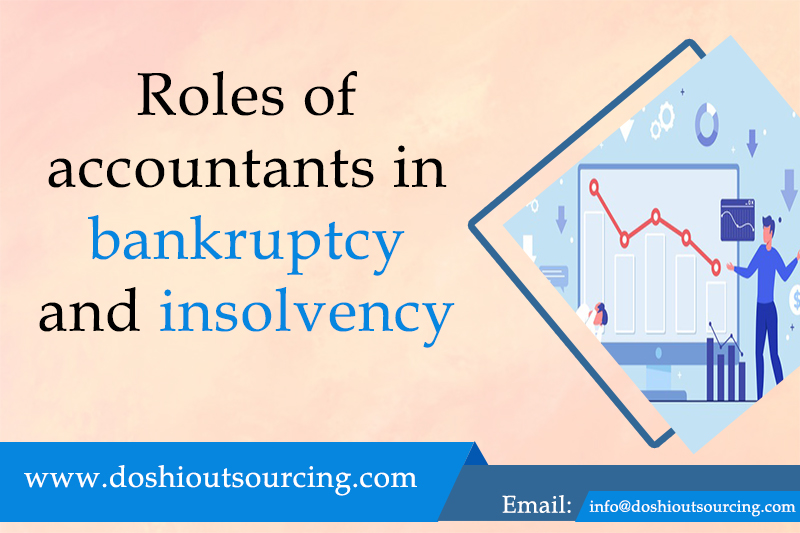Roles of Accountants In bankruptcy And Insolvency

December 23, 2020
There are several professions around us, and there are professionals who are devoted to these professions. What makes a person a professional? Anyone who identifies himself with a profession knows a field of activity and considers issues placed before him objectively and impartially making the person professional. The professions of medicine, law and church were considered dignified professions in England. Law and medicine continued to shine as noble professions after the church took a back seat. This creates a lasting bond which deserves to be cherished. The Insolvency Professionals fall into this category.
Duties And Responsibilities Of Accountants In Insolvency Proceedings And Bankruptcy Proceedings:
The biggest role of an accountant is the preparation of financial statements. Accountants are expected to prepare the financial statement of an insolvent party on a break-up basis. This is the opposite of the normal concerns related to accounts which are generally prepared.
Valuation And Quantification Of Assets:
Asset valuation plays a significant role in finance and consists of both objective and subjective measurements in the accounts. The assessment of a company's fixed assets – which are also known as capital assets or property plant and any other equipment like a machine – are straightforward to value, based on their book values and replacement expenditure. In certain cases, the value of the debtor’s assets is not readily available and this requires the business valuation skill of professional accountants to ascertain the fair value of the assets.
Acting As A Professional Witness In proceedings:
Bankruptcy is such a process which often involves long legal procedures which require an accounting professional to act as a witness. Accountants are considered as one of the most suitable finance professionals to act in this capacity. These professionals are very experienced in this field and qualified enough to deal with certain cases as they have a long experience in such proceedings regarding insolvency where involvement of accountant is inevitable.
Providing Forensic Information:
There is a broad range of responsibility that exists for accountants who deal with insolvency into forensic accounting. It depends on the client being represented and the nature of the trial, the work particulars and responsibility can be distinctly different than the normal proceedings. Here being an accountant it is expected that the accountant is an expert in the field of investigation of fraud, quantifying damages, derives the right value of the company and assess the right tax bills.
Acting As Liquidators Or Receivers:
As a liquidator an accountant is specially appointed to wind up the affairs of the company when the company is closing or in the financial difficulty—typically when the company is going bankrupt. Assets of a company are sold by the liquidator and the resulting funds are used to pay off the company's debts. A liquidator may also be referred to as a trustee, such as a bankruptcy trustee, in some jurisdictions.
Providing General Insolvency Services:
Licensed Accountants can provide valuable information and support either before or during bankruptcy proceedings. An accountant acting as an Insolvency Practitioner can help avoid the often painstaking and nerve-racking process of bankruptcy by professionally preparing satisfactory payment proposal that your creditors cannot turndown. For any business, accountants that are skilled and experienced in insolvency mostly can win a business turn around the process to save the business from going bust.
Accounting insolvency can be a much bigger matter for the companies to find the way through as it often involves long-term issues. If fixed assets have declined in value and the company needs to liquidate them to pay the overdue amount, it might run into monetary issues.
Hence, we can say that the accountants have a very important role in the matters of bankruptcy and insolvency proceedings and much responsible role to solve the problems faced by the organisations.


